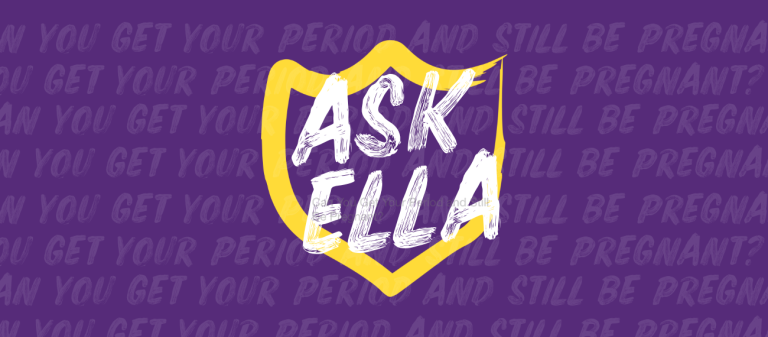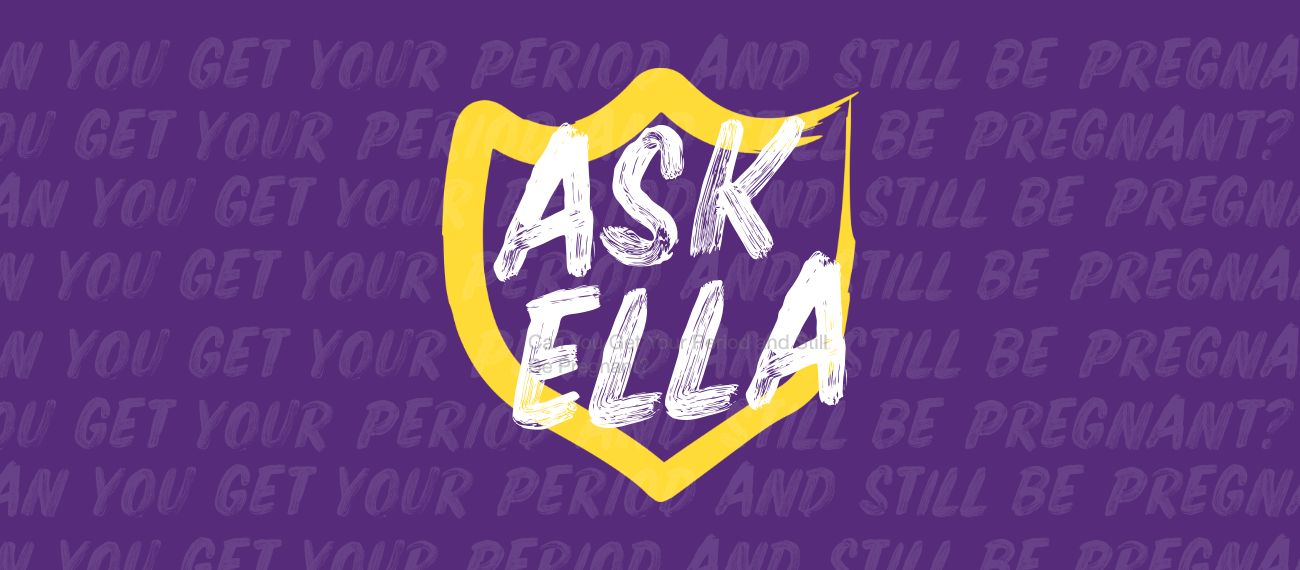Can you be pregnant and still have a period?
Have you heard stories about people who didn’t know they were pregnant until they went into labour? You know that getting your period means you’re not pregnant, but if someone was pregnant and didn’t know it then wouldn’t that mean they were getting their period?
You might be asking: “well I got my period, but could I still be pregnant?” This is an important question and we want to put your mind at ease, so read on for a discussion of this topic featuring comments from Dr Hana Patel*, a GP specialising in women’s health.
Can you have a period and still be pregnant?
The short answer is no, you cannot get your period and still be pregnant. However, it is possible to experience bleeding during pregnancy which may be mistaken for a period, particularly in the first trimester. “One in three women tend to have a light bleed or spotting called implantation bleeding,” says Dr Hana Patel. “That may be confused with a period when they conceive and get pregnant.”
To understand why you can’t get your period and be pregnant, we need to explore how menstruation and pregnancy work. After you stop bleeding from your monthly period, the lining of your uterus starts to thicken to prepare for possible implantation. Around the middle of your menstrual cycle (although this can vary widely from person to person), an egg will be released from the ovaries in a process known as ovulation. This egg will travel through the fallopian tubes towards the uterus.
Pregnancy occurs if sperm fuses with the egg, forming one cell, which will travel to the uterus, implant on the uterine wall and start to grow into an embryo. If the egg implants on the uterine wall, pregnancy hormones will be released which stop your uterine lining from shedding, thus preventing your period whilst pregnant. If sperm does not meet an egg, the lining of the uterine wall sheds and you will get your period.
Can you have a light period and still be pregnant?
As we saw above, your period is the result of the uterine wall shedding. When pregnant, the uterine wall will not shed as pregnancy hormones have been released and the embryo has implanted in it. Therefore, if you bleed whilst you are pregnant it is not your period.
Bleeding can happen during your pregnancy, however, and it can be easy to confuse it with a period. “Women don’t get their period when they are pregnant,” says Dr Hana Patel, “but can get vaginal bleeding at certain points in the pregnancy due to reasons such as implantation bleeding, after intercourse, or if you are at risk of a miscarriage, for example.”
Implantation bleeding doesn’t happen to everyone, but if it does it may happen around the time you were expecting your period and so could be mistaken for a period. There are a few things to note, however. Implantation period is considered spotting, and should not be enough to fill a pad. It is typically dark brown, brown or light pink, and may resemble vaginal discharge more than it resembles a period. It is also less likely to cause cramping and should only last about 2 days.
There are other reasons you might bleed during early pregnancy, which could be the result of an ectopic pregnancy, miscarriage or infection. If you think you might be pregnant, you should take a pregnancy test and see a doctor.
Can you have a heavy period and still be pregnant?
Heavier bleeding during your pregnancy may, although not necessarily, indicate miscarriage. Other potential causes include placenta previa (where the placenta covers the opening of the cervix during the last months of pregnancy), placental abruption (where the placenta detaches too early), and uterine rupture (which is pretty rare).
If you experience bleeding during your pregnancy you should see a doctor as soon as possible, but don’t panic. People may experience bleeding and still go on to have a healthy pregnancy. It’s just important to see a doctor so you know what’s happening and take care of yourself.
Can you get regular periods and still be pregnant?
Whilst it wouldn’t be your period, could you have regular monthly bleeds and still be pregnant? “I would say it is very rare,” says Dr Hana Patel, “because the bleeding pattern is usually that women do not have a monthly bleed, as the pregnancy hormone (beta HCG) stops the process of the womb shedding its lining every month. Some women may get vaginal bleeding due to different reasons as mentioned above.”
So why would you not know that you’re pregnant if you don’t get a period?
We’ve established that you don’t get a period during pregnancy, and whilst you might experience implantation bleeding it isn’t a period and has distinct differences. So how could someone not know they were pregnant?
“In about 1 in 475 pregnancies, women are unaware of pregnancy until 20 weeks gestation or longer,” says Dr Hana Patel. “There is a phenomenon called cryptic pregnancy, where a woman has the normal pregnancy symptoms that a women who does know she is pregnant gets, but in cryptic pregnancy the woman is in denial of the cause of these symptoms, and may believe that they have nausea, or justify the symptoms they are having in some other way,”
If you have an irregular period, you might not question missing a few as that could be a normal experience in your cycle. If you are on forms of contraception like a contraceptive pill you may also not get a period. Whilst contraceptive pills are over 99% effective at preventing pregnancy when used correctly, no contraception is 100% effective.
If you have any concerns about pregnancy and you’ve skipped a period or had a different bleed than you’re used to, it’s worth taking a pregnancy test and reading the instructions on the test for the most accurate results. If you have irregular periods or don’t get periods for other reasons, it can be worth taking a pregnancy test for peace of mind if you have any concerns. Rest assured that if you are having regular periods which are normal for you, you are not pregnant.
Can you get pregnant if you take the morning after pill?
If you are having sex and want to avoid unplanned pregnancy, you should use a regular method of contraception like condoms, contraceptive pills or a long term method of contraception. We know, however, that contraceptive methods can fail, or sometimes you get caught up in the moment. If this happens, you can take the morning after pill to help prevent pregnancy.
No contraceptive is 100% effective, and so yes, there is a chance you could still get pregnant after taking the morning after pill. Emergency hormonal contraceptive pills help prevent pregnancy by delaying ovulation, so the egg is held back and any sperm that has entered the body will die off before the egg is released. As sperm can live in the body for up to five days, you can get pregnant even if you don’t have sex on the day that you ovulate. If you have already ovulated before taking the morning after pill, it will not be effective.
ellaOne® is the most effective morning after pill* and can be taken up to five days after unprotected sex, although it is most effective when taken as soon as possible, ideally within 24 hours. How do you know if the morning after pill has worked? Emergency hormonal contraceptive pills can delay your period by up to seven days, but you should still get it. If you don’t get your period, you should take a pregnancy test.
*Dr Hana Patel does not endorse any products or brands.
Have you ever taken the morning after pill? Why not share your story to help us end the stigma around hormonal emergency contraception




